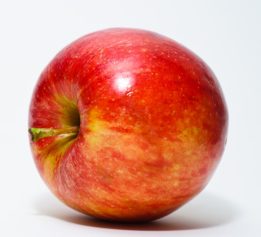A new study suggests the consumption of whole grain foods like oats, quinoa, brown rice and even popcorn (without the butter!) may increase a life span and decrease one’s chances of death by cardiovascular disease.
The study from the Harvard School of Public Health (HSPH) appeared online on Monday at JAMA Internal Medicine.
Researchers looked at data from more than 74,000 women from the Nurses’ Health Study and 44,000 men from the Health Professionals Follow-Up Study who filled out questionnaires about their diet every two or four years from the mid-1980s to 2010, including whole grain intake.
Adjusting for a variety of factors, such as age, smoking, body mass index, physical activity and overall diet excluding whole grains, the study found three important things:
Those who ate at least 28 grams of whole grains a day had a 5 percent lower risk of dying over the 25-year period, and a 9 percent lower risk of dying from cardiovascular-disease-related death. About 26,920 people in the study had died during the quarter century research period. However, whole grains did not have an effect on cancer-related deaths.
Those who replaced one serving a day of refined grains with whole grains reduced their risk of dying by 8 percent, and people who replaced one daily serving of red meat had reduced their risk by 20 percent.
Bran seems to be the beneficial part of the grain. The bran is the fibrous skin that covers the kernel and carries minerals such as Vitamin B. During processing, the bran is stripped and leaves one with the nutrition-less white bread. The researchers didn’t find any decreased overall mortality risk from eating germ, another component of whole grains.
“This study further endorses the current dietary guidelines that promote whole grains as one of the major healthful foods for prevention of major chronic diseases,” says Qi Sun, assistant professor in the Department of Nutrition at HSPH and senior author of the study, to the Los Angeles Times.
Currently, there is no certain amount of whole grains needed to be consumed to achieve this benefit of longevity; it seems that the more whole grains that is incorporated into the diet, the better. Thus, in the time it took you to read this article, you could have eaten three cups of delicious popped corn—the 1 ounce equivalent of whole grains.
S.C. Rhyne is a blogger and novelist in New York City. Follow the author on Twitter @ReporterandGirl, http://Facebook.com/TheReporterandTheGirl and visit her website at http://www.TheReporterandTheGirl.com


